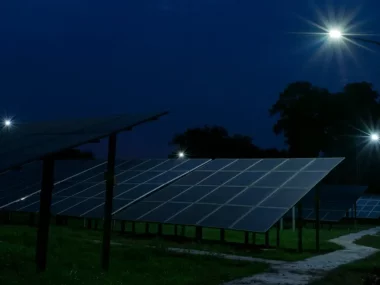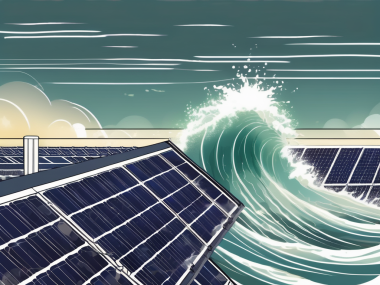Unveiling the Dynamics: Factors Influencing Solar Panel Output and Efficiency
- In the realm of renewable energy, solar power stands out as a beacon of promise, offering a clean and sustainable solution to our energy needs. Yet, while solar panels are hailed for their reliability and eco-friendliness, the intricacies of their performance are shaped by a multitude of factors. Understanding these factors is paramount for harnessing the full potential of solar energy.
- In this exploration, we embark on a journey into the nuanced world of solar panel output and efficiency. From the celestial dance of sunlight to the technical nuances of system design, each aspect plays a crucial role in determining the effectiveness of solar energy capture and conversion.
Factors affecting the output and efficiency of solar panels
The portion of energy in the form of sunlight that can be converted via photovoltaics into electricity is referred to as Solar Cell Efficiency. Also output and efficiency of solar panels are influenced by various factors, both environmental and technical. Understanding these factors is crucial for maximizing the performance of your solar panel system. Here are some key factors affecting the output and efficiency of solar panels:
Inverter Efficiency:
The efficiency of the inverter, which converts the DC electricity generated by the solar panels into usable AC electricity, also impacts overall system efficiency. High-quality inverters can minimize energy losses during this conversion process.
System Design and Wiring
The design and wiring of the solar panel system can affect its efficiency. Proper sizing, configuration, and wiring techniques help minimize energy losses and maximize output.
Sunlight Intensity:
Solar panels produce more electricity when exposed to higher levels of sunlight. Factors such as time of day, season, and geographic location affect the intensity of sunlight reaching the panels.
Angle and Orientation:
The angle and orientation of solar panels relative to the sun impact their efficiency. Ideally, panels should be tilted at an angle that maximizes sunlight exposure throughout the day, and they should be facing true south (in the Northern Hemisphere) or true north (in the Southern Hemisphere) for optimal performance.
Shading:
Shading from nearby objects such as trees, buildings, or even clouds can significantly reduce the output of solar panels. It’s important to minimize shading as much as possible to ensure consistent sunlight exposure.
Temperature:
Solar panels are more efficient at lower temperatures. High temperatures can decrease efficiency and output. However, some panels are designed to handle temperature variations better than others.
Dust and Debris:
Accumulation of dust, dirt, leaves, and other debris on the surface of solar panels can reduce their efficiency by blocking sunlight. Regular cleaning is essential to maintain optimal performance.
Panel Quality and Technology:
The quality and technology of solar panels play a significant role in determining their efficiency. Higher-quality panels with advanced technologies such as monocrystalline silicon tend to be more efficient than lower-quality panels.
Soiling
This term covers snow, leaves, dirt, debris, animal droppings, and dust on the surface of solar panels. With the increase in soiling of solar panels, their overall performance decreases leading to reduced efficiency as a sufficient amount of sunlight cannot reach the surface of the panels.
Latitude
The angle of placing the panels is equally important for increased or decreased efficiency. South-facing Solar Panels tend to be more efficient. However, depending on the location of your house, solar panels can be faced east or west. south-facing panels have the leverage to absorb sunlight till evenings and rays touch the panels more directly than other orientations. Overall, efficiency is influenced by their orientation along with the location of your house. This is one of the factors affecting Solar Panel efficiency.
- By considering and addressing these factors, Solar Panel owners can ensure that their systems operate at peak efficiency, maximizing energy production and return on investment.











